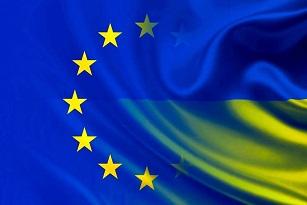
In the margins of the 22nd EU-Ukraine Summit in Brussels, EU Commissioner for Neighbourhood and Enlargement, Olivér Várhelyi, signed together with the Deputy Prime Minister for European and Euro-Atlantic Integration of Ukraine, Olga Stefanishina, three programmes worth €60 million in total to further boost the country's resilience and address the socio-economic impact of the COVID-19 pandemic.
Commissioner Várhelyi said: “This support package will help Ukraine to develop a more resilient society and economy, including in the regions most affected by the conflict. The newly signed programmes are part of our €190 million assistance to address the impact of the COVID-19 crisis in the country. We will continue to actively support Ukraine's reform process and economic recovery.“
The programme “EU4ResilientRegions”, worth €30 million, aims at enhancing the resilience of eastern and southern Ukraine to the negative impacts of the ongoing conflict, including to hybrid threats and other destabilising factors. Furthermore, a “Civil Society Facility” programme with a budget of €20 million will support the strengthening of civil society organisations capacity to participate in decision-making and public life. Finally, a €10 million “Climate package for a sustainable economy” programme will support Ukraine in developing a holistic approach to restructure its key economic sectors towards a low carbon economy.
Background on the assistance package
“EU4ResilientRegions” programme
Building on the ongoing EU support to eastern Ukraine, approximately €580 million since 2014, the programme will focus on building social capital, enhancing human security and strengthening information integrity in Ukraine's eastern and southern regions. In response to the conflict in eastern Ukraine and the illegal annexation of Crimea and Sevastopol, this action will aim to enhance Ukraine's overall resilience, notably to hybrid threats. It will contribute to Ukraine's reform progress, community development and to support people-to-people contacts across the country. The action will also address most recent destabilisation factors such as the COVID-19 pandemic and its social and economic impact. The key elements of the programme will encompass better citizen services; including health, support to youth, minorities, civil society and human rights defenders and community security. The programme will support quality independent media and the fight against disinformation. It will also contribute to public outreach in non-government-controlled areas of Ukraine.
“Civil Society Facility” programme
The programme focuses on social innovation and active citizenship as core principles for civic engagement and the premises for sustainable democratic societies. It aims to support the capacity of civil society organisations to engage in policy dialogue, to act as governance actors and to drive the country's social and economic development. Particular attention is paid to environmental governance, advancing minority - and women's rights. Actions will concentrate on tackling the COVID-19 crisis and its aftermath. Since 2014 and including this programme, approximately €80 million have already been committed in targeted support to Ukraine's civil society.
“Climate package for a sustainable economy” programme
Decoupling economic growth from resource use and transiting to a zero carbon economy are key objectives of the European Union, also in the post-Covid-19 recovery. Following the interest of the Ukrainian government to engage on the European Green Deal, this programme supports Ukraine in the implementation of measures towards a climate neutral, clean and resource-efficient economy. This includes support in areas such as circular economy and waste management, energy efficiency, emission-free urban transport as well as support to climate mitigation and adaptation. The programme will contribute to Ukraine's alignment with the EU Green Deal policies and to the implementation of the EU-Ukraine Association Agreement
For More Information
Details
- Publication date
- 6 October 2020
- Author
- Directorate-General for Neighbourhood and Enlargement Negotiations
